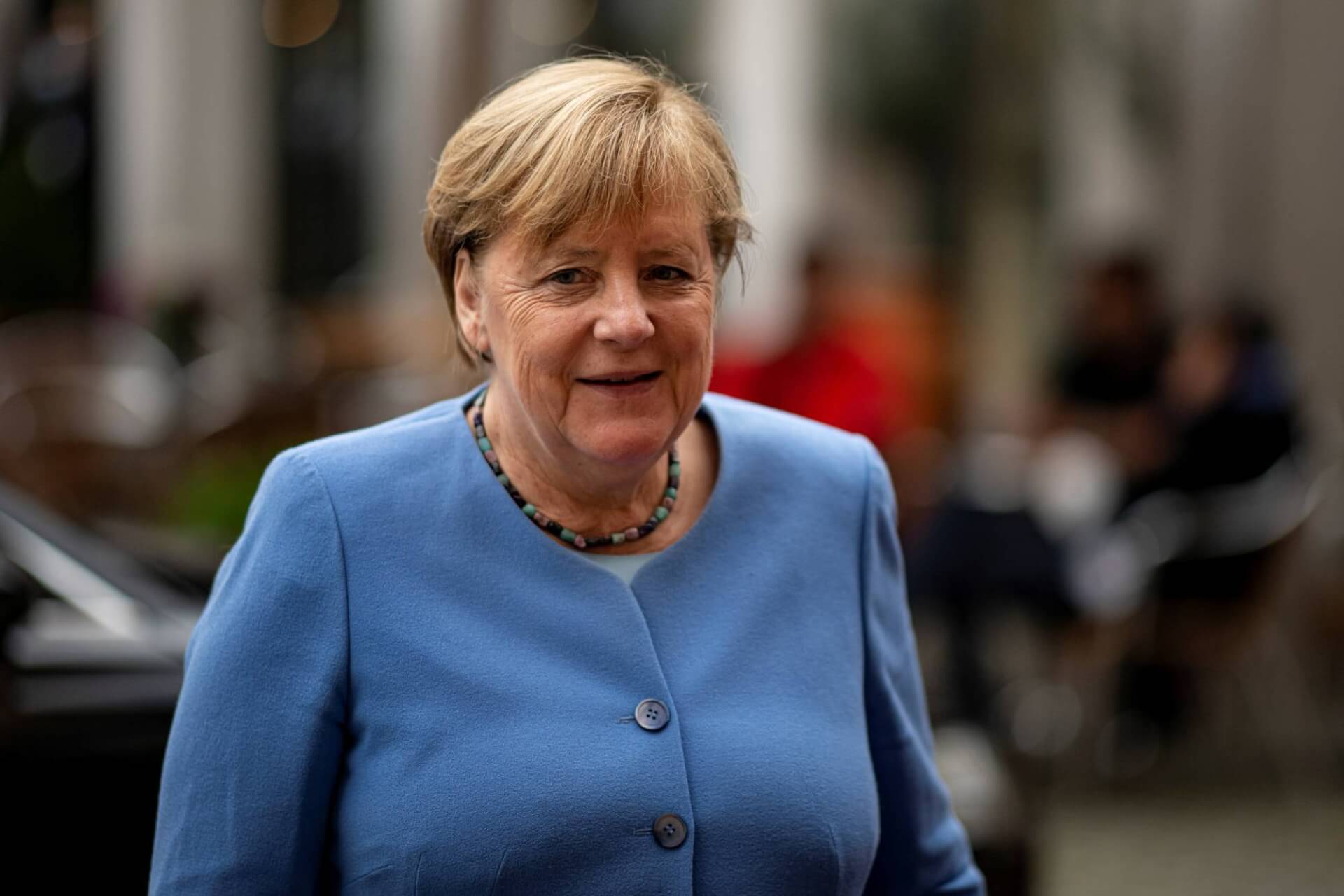During a phone conversation with exiled Belarusian opposition leader Sviatlana Tsikhanouskaya on Monday, German Chancellor Angela Merkel reaffirmed her country’s support for Belarus’ pro-democracy movement. The duo also discussed the political crisis in Belarus and the problematic situation at the Poland-Belarus border.
German government spokesperson Steffen Seibert said: “The Chancellor underlined the continued support of the Federal Government for the Belarusian democracy movement and stressed that the political leadership of the country must end the repression against the opposition and independent journalists, release prisoners and enter into a serious dialogue with society in order to resolve the crisis through fair and free elections.”
The conversation between the two leaders comes after Tsikhanouskaya criticised Merkel’s call with Belarusian President Alexander Lukashenko last week to discuss humanitarian aid for migrants stuck at the Poland-Belarus border. Tsikhanouskaya said, “From the side of the Belarusian people, it looked very strange.” She added that Lukashenko’s presidential appointment should not be legitimised through diplomatic engagements and urged the European leaders to refrain from establishing contacts with Lukashenko.
Lukashenko secured a resounding victory in the 2020 presidential elections, which the West claimed were rigged. Following his victory, Lukashenko violently cracked down on protests, leading to the imprisonment and torture of human rights activists and opposition leaders. His actions were condemned worldwide, with the United States and the European Union (EU) imposing sanctions on the Belarusian leader and his regime for electoral fraud and human rights abuses.
In the latest confrontation, two weeks ago, the EU accused Belarus of orchestrating a migrant crisis at its border with Poland to retaliate against the bloc’s sanctions. During a recent interview with the BBC, Lukashenko denied the allegations but admitted that Belarusian troops may have helped migrants reach the EU’s border.
On Monday, Lukashenko called on Europe, particularly Germany, to admit 2,000 migrants stuck on the Poland border and accused the bloc of not holding talks on the migrant crisis. Lukashenko declared, “We don’t want confrontation. We don’t need it. Because we understand that if we go too far, war is unavoidable. And that will be a catastrophe. We understand this perfectly well. We don’t want any kind of flare-up.”
Merkel’s spokesperson responded that Lukashenko’s proposal is not an acceptable solution. Likewise, Austrian Chancellor Alexander Schallenberg said Europe must not be forced to accept the thousands of migrants stuck on its borders with Belarus. An Austrian government spokesperson said, “The idea of having a humanitarian corridor to Germany for 2,000 migrants is not a solution that is acceptable to Germany or the EU.”
Meanwhile, Polish Prime Minister Mateusz Morawiecki has called the migration crisis “the greatest attempt to destabilise Europe since the Cold War.” “In the last 40 hours, Lukashenko transported migrants directly from the Polish border to logistics centres a few kilometres from the border with Latvia. This best shows that these people are an instrument in the hands of the authorities in Minsk,” he remarked.
He added that Poland would not yield to the pressure and that it would do everything to secure the EU’s borders. He also blamed Russian President Vladimir Putin for providing support to Lukashenko.
Polish border guards have claimed that Belarusian forces are still transporting migrants from the Middle Eastern countries to the EU border, despite clearing the migrant camps and shifting them to a warehouse shelter last week.
Merkel Reaffirms Support for Belarus’ Democratic Movement in Call With Tsikhanouskaya
Angela Merkel reaffirmed her support for Belarus’ pro-democracy movement after exiled opposition leader Sviatlana Tsikhanouskaya criticised Merkel’s recent call with Alexander Lukashenko.
November 23, 2021

German Chancellor Angela Merkel IMAGE SOURCE: THE JAPAN TIMES
